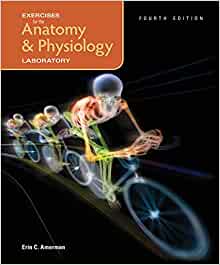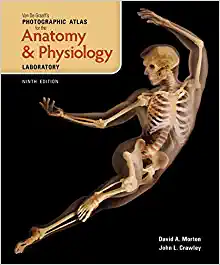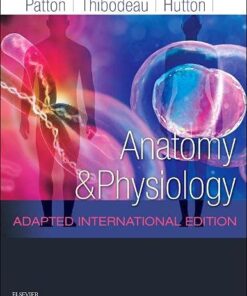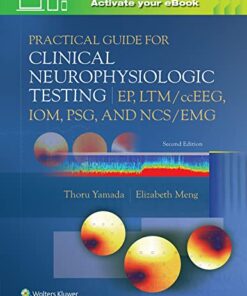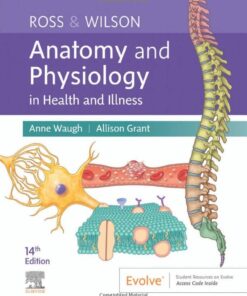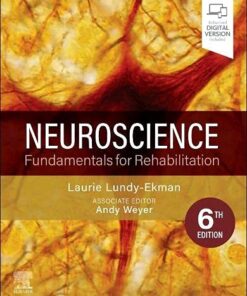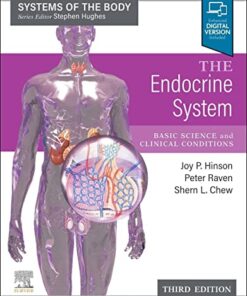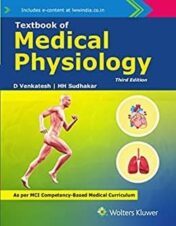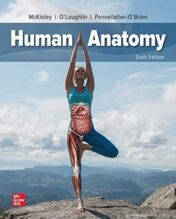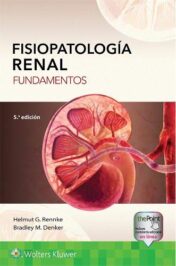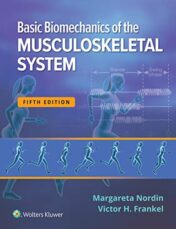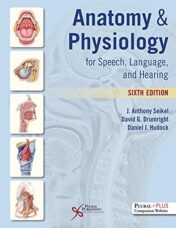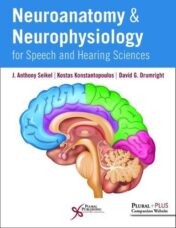Discover the Best Physiology Books to Enhance Your Knowledge
Discover the Best Physiology Books at DentalBooks.net
Are you looking for the best physiology books to help you understand the human body? Look no further than DentalBooks.net. Our selection of physiology books covers a wide range of topics, from anatomy and physiology to biochemistry and pharmacology. Whether you’re a student studying for exams or a professional looking to stay up-to-date on the latest research, we have the perfect book for you. With our easy-to-navigate website, you can quickly find the right book for your needs. Plus, our customer service team is always available to answer any questions you may have. So don’t wait – explore our selection of physiology books today and start learning more about the human body!
Physiology Books
Physiology Books
A Visual Analogy Guide to Human Physiology, 3rd Edition (Original PDF from Publisher)
Physiology Books
Exercises for the Anatomy & Physiology Laboratory, 4th Edition (Original PDF from Publisher)
Physiology Books
Physiology Books
Physiology Books
Anatomy and Physiology, Adapted International Edition (Patton) (Original PDF from Publisher)
Physiology Books
Physiology Books
Pulmonary Physiology, Tenth Edition (Original PDF from Publisher)
Physiology Books
Physiology Books
Pulmonary Physiology, Tenth Edition (High Quality Image PDF)
Physiology Books
Neuroscience: Fundamentals for Rehabilitation, 6th edition (Original PDF from Publisher)
Physiology Books
The Endocrine System: Systems of the Body Series, 3rd edition (Original PDF from Publisher)
Physiology Books
The Digestive System: Systems of the Body Series, 3rd edition (Original PDF from Publisher)
Physiology Books
Physiology Books
Textbook of Medical Physiology, 3rd edition Original PDF 2020
Physiology Books
Physiology Books
Physiology Books
Fundamental Principles of Exercise Physiology: For Fitness, Performance and Health(original pdf)
Physiology Books
Fisiopatología renal: Fundamentos, 5th Edition (Spanish Edition) (EPUB and CONVERTED PDF)
Physiology Books
Physiology Books
Physiology and Nutrition for Amateur Wrestling (Original PDF)
Physiology Books
Anatomy & Physiology for Speech, Language, and Hearing, Sixth Edition (Original PDF)
Introduction
Are you looking to enhance your knowledge of physiology? If so, then you've come to the right place! Here at Discover the Best Physiology Books, we have compiled a comprehensive list of the best physiology books available. Our selection includes books for beginners, advanced learners, and everyone in between. Whether you're looking to learn about the human body, animal physiology, or medical terminology, we have the perfect book for you. With our selection of top-rated titles, you can be sure to find the perfect book to help you expand your knowledge and understanding of physiology.
Overview of Physiology and Its Role in Human Health
Physiology is the scientific study of the functions and processes that occur in living organisms. It is a branch of biology that focuses on how organisms, organs, and cells work together to create life. Physiology is an important field of study because it helps us understand how our bodies function and how we can maintain good health.
The human body is made up of many different systems, each with its own unique set of functions. The cardiovascular system is responsible for circulating blood throughout the body, while the respiratory system is responsible for taking in oxygen and expelling carbon dioxide. The digestive system breaks down food into nutrients that can be used by the body, and the endocrine system produces hormones that regulate various bodily functions. All of these systems work together to keep the body functioning properly.
Physiology also studies the effects of external factors on the body. For example, exercise has been shown to have positive effects on the cardiovascular system, while stress can have negative effects on the immune system. By understanding how these external factors affect the body, we can better understand how to maintain good health.
In addition to studying the body’s systems and their interactions, physiology also looks at how the body responds to disease and injury. By understanding how the body works, we can develop treatments and therapies that can help people recover from illness or injury.
Overall, physiology plays an important role in human health. By understanding how the body works, we can better understand how to maintain good health and how to treat illnesses and injuries.
Exploring the Anatomy and Physiology of the Human Body
Exploring the anatomy and physiology of the human body is an incredibly fascinating journey. It is a complex system that is made up of many different parts, all working together to keep us alive and functioning.
The anatomy of the human body is the study of its structure. This includes the bones, muscles, organs, and other tissues that make up our bodies. Anatomy looks at how these structures are arranged and how they interact with each other. It also looks at how the body moves and functions.
Physiology is the study of how the body works. It looks at how the body’s systems work together to maintain homeostasis, or balance. Physiology looks at how the body responds to stimuli, such as exercise, diet, and stress. It also looks at how the body repairs itself after injury or illness.
The human body is made up of several major systems, including the skeletal, muscular, circulatory, respiratory, digestive, endocrine, reproductive, and nervous systems. Each system has its own unique function and plays an important role in keeping us healthy.
The skeletal system provides structure and support for the body. It consists of bones, joints, and ligaments. The bones provide protection for the internal organs and support for the body’s movement. The joints allow the body to move in different directions. The ligaments connect the bones and help to stabilize them.
The muscular system is responsible for movement. It consists of muscles, tendons, and ligaments. Muscles contract and relax to produce movement. Tendons attach muscles to bones and help to control movement. Ligaments connect bones to other bones and help to stabilize them.
The circulatory system is responsible for transporting oxygen, nutrients, and hormones throughout the body. It consists of the heart, blood vessels, and blood. The heart pumps blood through the vessels to deliver oxygen and nutrients to the cells. The blood carries away waste products and helps to regulate body temperature.
The respiratory system is responsible for bringing oxygen into the body and removing carbon dioxide. It consists of the lungs, airways, and diaphragm. The lungs take in oxygen and expel carbon dioxide. The airways carry the oxygen to the cells. The diaphragm helps to control breathing.
The digestive system is responsible for breaking down food and absorbing nutrients. It consists of the mouth, esophagus, stomach, small intestine, large intestine, and rectum. The mouth breaks down food and sends it to the esophagus. The stomach and intestines break down food further and absorb the nutrients. The rectum stores waste until it is eliminated from the body.
The endocrine system is responsible for producing hormones. It consists of the pituitary gland, thyroid gland, adrenal glands, pancreas, ovaries, and testes. These glands produce hormones that regulate growth, metabolism, reproduction, and other bodily functions.
The reproductive system is responsible for producing offspring. It consists of the male and female reproductive organs. The male reproductive organs produce sperm and the female reproductive organs produce eggs. When the sperm and egg unite, a new life is created.
The nervous system is responsible for sending signals throughout the body. It consists of the brain, spinal cord, and nerves. The brain processes information and sends signals to the rest of the body. The spinal cord carries signals between the brain and the rest of the body. The nerves carry signals to and from the brain and spinal cord.
Exploring the anatomy and physiology of the human body is an incredible journey. It is a complex system that is made up of many different parts, all working together to keep us alive and functioning. By understanding how the body works, we can better care for ourselves and lead healthier lives.
Understanding the Interaction Between Physiology and Pathology
Understanding the interaction between physiology and pathology is essential for medical professionals to accurately diagnose and treat patients. Physiology is the study of how the body works, while pathology is the study of diseases and their causes. Both are closely related and interact in many ways.
Physiology is the study of the normal functioning of the body. It looks at how organs, tissues, and cells work together to maintain health. It also examines how the body responds to external stimuli, such as changes in temperature or environment. Pathology is the study of disease and its causes. It looks at how diseases develop, spread, and affect the body.
The two disciplines are closely intertwined. For example, a person’s physiology can influence their risk of developing certain diseases. For instance, people with high blood pressure are more likely to suffer from heart disease. Similarly, certain diseases can cause physiological changes. For example, diabetes can lead to changes in blood sugar levels, which can have an effect on other organs and systems in the body.
In addition, understanding the interaction between physiology and pathology can help medical professionals diagnose and treat diseases. By looking at both the physiological and pathological aspects of a patient’s condition, doctors can get a better understanding of what is causing the illness and how best to treat it.
Finally, understanding the interaction between physiology and pathology can help medical professionals prevent diseases. By understanding how certain diseases develop and spread, doctors can take steps to reduce the risk of them occurring. For example, by understanding how obesity increases the risk of heart disease, doctors can advise patients on lifestyle changes that can reduce their risk.
Overall, understanding the interaction between physiology and pathology is essential for medical professionals to accurately diagnose and treat patients. By looking at both the physiological and pathological aspects of a patient’s condition, doctors can get a better understanding of what is causing the illness and how best to treat it. In addition, understanding this interaction can help medical professionals prevent diseases by taking steps to reduce the risk of them occurring.
Examining the Impact of Nutrition on Physiological Function
Nutrition plays a vital role in maintaining physiological function. It is essential for the body to receive the right amount of nutrients, vitamins, and minerals to ensure that all systems are functioning properly. Without proper nutrition, the body can become weak and susceptible to disease and illness.
The impact of nutrition on physiological function is far-reaching. Nutrients provide energy for the body to perform its daily activities. They also help to build and repair tissues, regulate hormones, and support the immune system. Vitamins and minerals are essential for the body to absorb and use other nutrients. Without them, the body cannot properly utilize the food it consumes.
In addition to providing energy and building blocks for the body, nutrition also affects the way the body functions. For example, certain foods can help to reduce inflammation, which can improve overall health. Eating a balanced diet with plenty of fruits, vegetables, whole grains, and lean proteins can help to keep the body functioning optimally.
Nutrition also has an effect on mental health. Eating a healthy diet can help to reduce stress levels, improve mood, and increase cognitive performance. Eating a balanced diet can also help to reduce the risk of developing certain mental health conditions, such as depression and anxiety.
Finally, nutrition can affect physical performance. Eating a balanced diet can help to improve endurance, strength, and speed. Eating a diet rich in carbohydrates can help to fuel the body during exercise, while eating a diet high in protein can help to build muscle.
Overall, nutrition plays an important role in maintaining physiological function. Eating a balanced diet with plenty of fruits, vegetables, whole grains, and lean proteins can help to keep the body functioning optimally. Eating a healthy diet can also help to reduce stress levels, improve mood, and increase cognitive performance. Finally, eating a balanced diet can help to improve physical performance.
Investigating the Effects of Exercise on Physiological Processes
Exercise is an important part of a healthy lifestyle, and its effects on physiological processes are well-documented. Exercise has been shown to improve cardiovascular health, reduce the risk of chronic diseases, and even improve mental health. Investigating the effects of exercise on physiological processes can help us better understand how physical activity affects our bodies and minds.
The most obvious effect of exercise on physiological processes is improved cardiovascular health. Regular physical activity increases heart rate and blood flow, which helps to strengthen the heart muscle and reduce the risk of heart disease. Exercise also increases the body’s production of endorphins, which can help to reduce stress and improve mood. Additionally, regular physical activity can help to reduce cholesterol levels and lower blood pressure.
Exercise can also have positive effects on metabolic processes. Regular physical activity can help to increase insulin sensitivity, which can help to regulate blood sugar levels and reduce the risk of type 2 diabetes. Exercise can also help to increase the body’s ability to burn fat, which can lead to weight loss and improved overall health.
In addition to its physical benefits, exercise can also have positive effects on mental health. Regular physical activity can help to reduce stress and anxiety, as well as improve mood and cognitive function. Exercise can also help to improve sleep quality, which can help to reduce fatigue and improve overall wellbeing.
Investigating the effects of exercise on physiological processes can help us better understand how physical activity affects our bodies and minds. By understanding the positive effects of exercise, we can make informed decisions about our health and lifestyle choices. Regular physical activity can help to improve cardiovascular health, reduce the risk of chronic diseases, and even improve mental health.
Conclusion
In conclusion, physiology books are a great way to enhance your knowledge and understanding of the human body. With so many different titles available, it can be difficult to know which ones are the best. However, by researching reviews and ratings, you can find the perfect book for your needs. Whether you’re looking for an in-depth exploration of the subject or a more general overview, there is sure to be a physiology book that will help you gain a better understanding of the human body.




